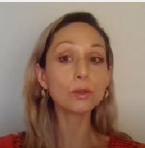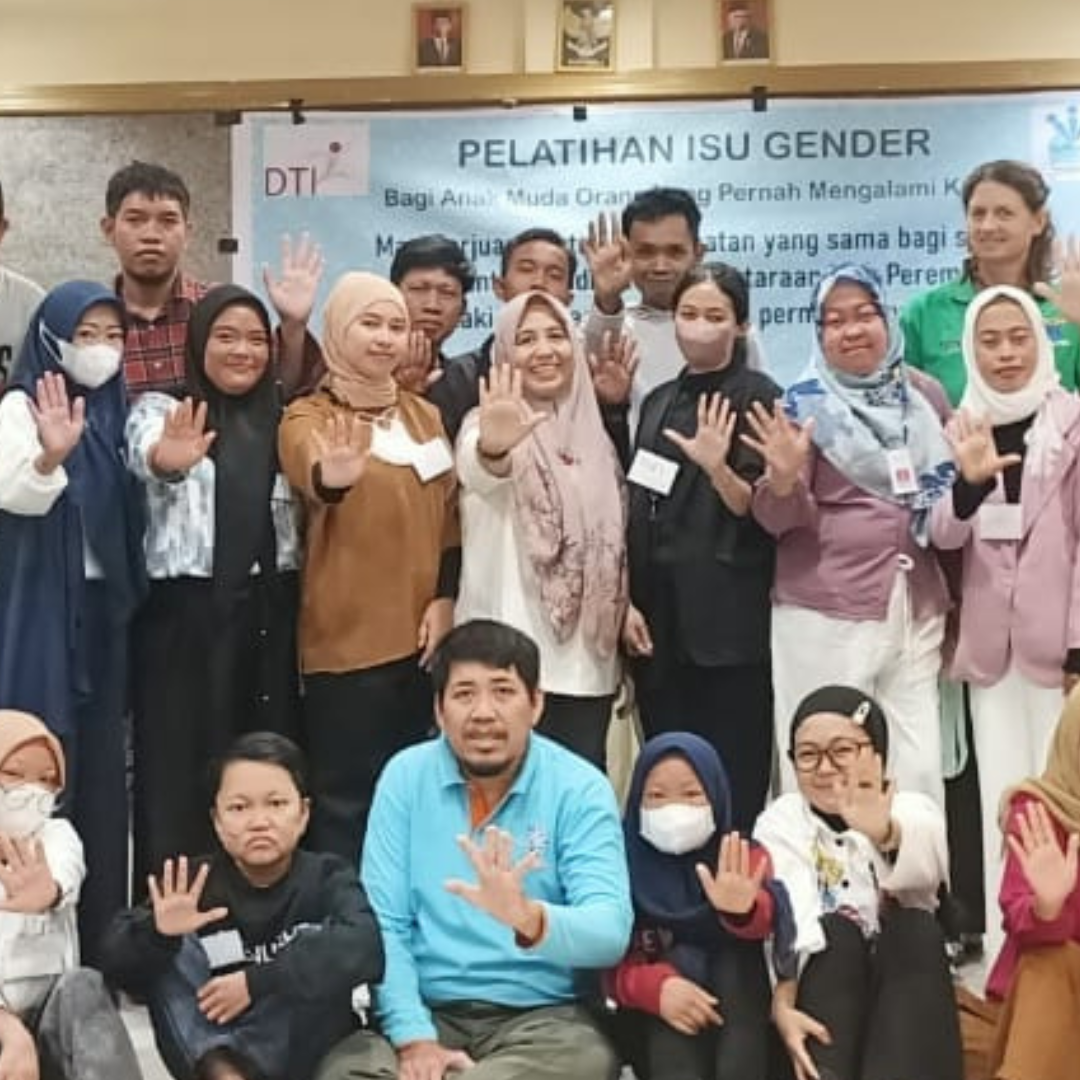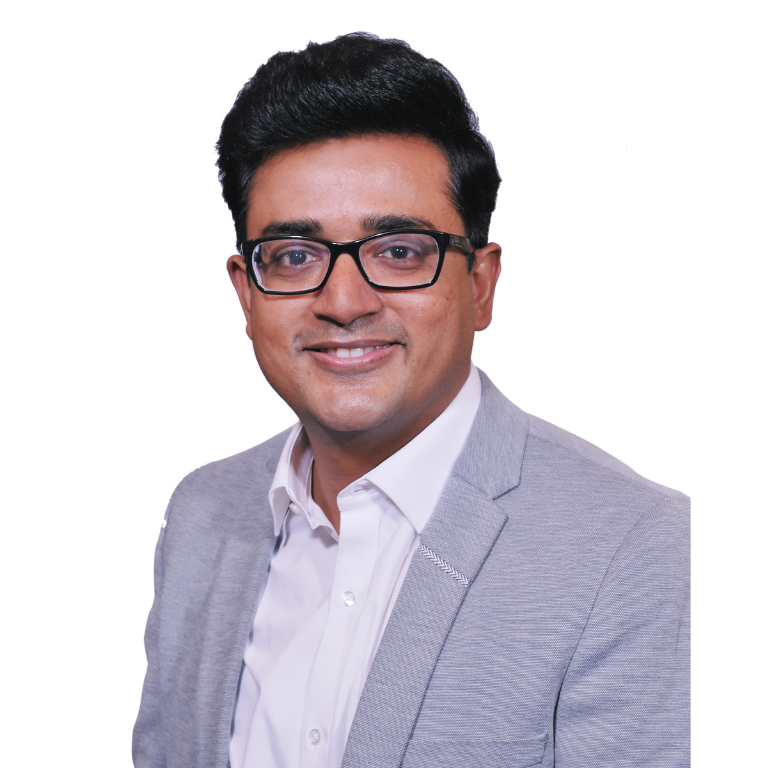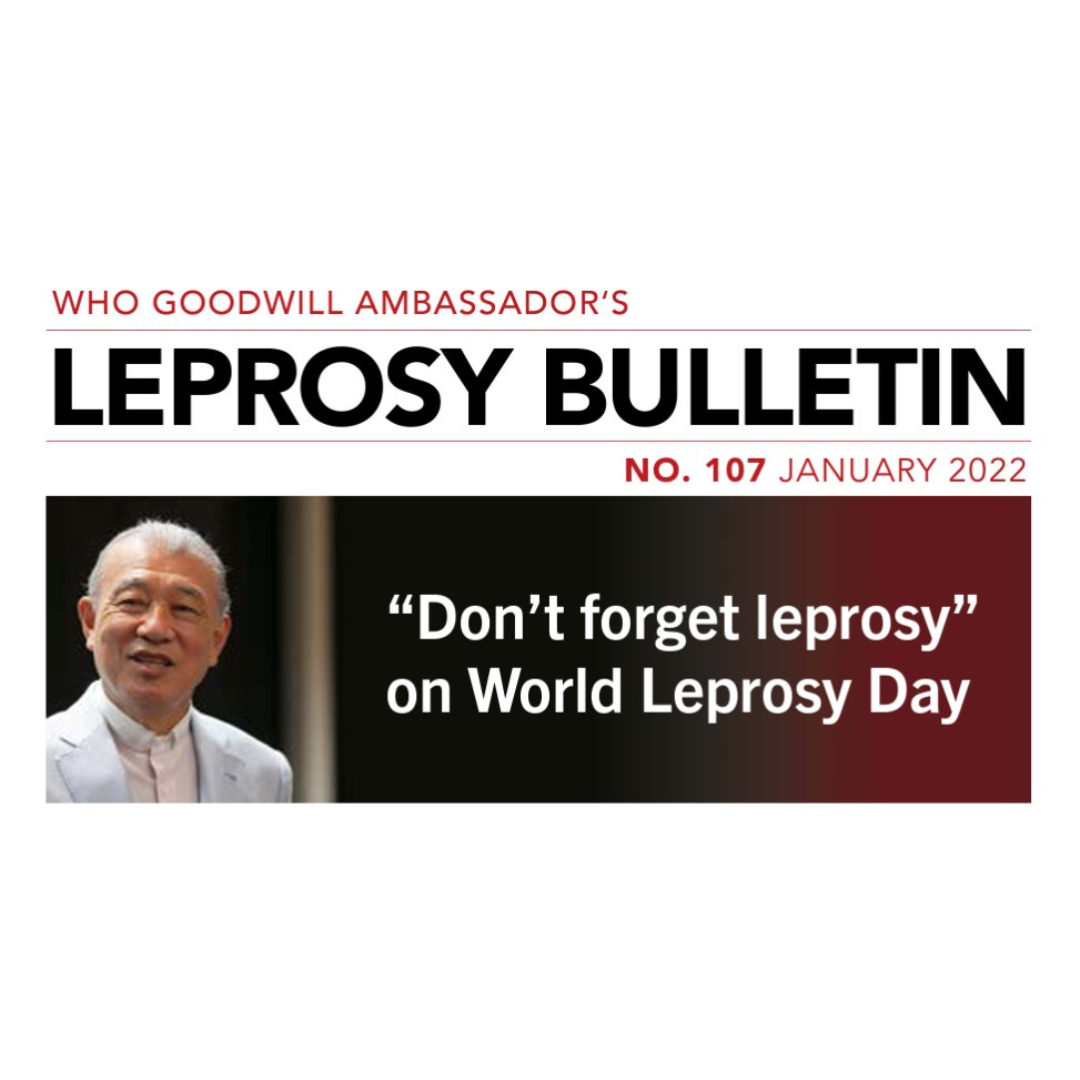On Jan. 23-24, 2023, the International Symposium at the Vatican on Hansen’s Disease was held at the Augustinian Patristic Institute (Augustinianum) in Rome on the theme “Leave No One Behind.” The Symposium was co-hosted by the Fondation Raoul Follereau, Italian Association Amici di Raoul Follereau (AIFO), and Sasakawa Leprosy (Hansen’s Disease) Initiative, in cooperation with the Holy See’s Dicastery for Promoting Integral Human Development.
The Symposium gathered around 130 health and human rights experts, organizational representatives, and persons affected by Hansen’s disease (leprosy) or other neglected tropical diseases (NTDs), altogether from 24 countries, to discuss actions needed to achieve “zero leprosy” and realize a society in which no one is left behind. Here we share a small selection of quotations from Symposium speakers.
To listen to the full range of voices from the Symposium, watch the video recordings posted to the 2023 Global Appeal website.
Ongoing need for awareness raising
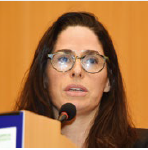
Arielle Cavaliero
Global Business Director
Leprosy Global Health Program at Novartis
“Whenever I speak to anyone about leprosy there’s always various responses that come, but there’s one thing that is recurring, which is a sense of surprise that it still exists. No matter who I speak to, this is always predominantly the first thing that is said.”
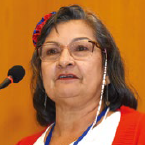
Lucrecia Vasquez Acevedo
President
Felehansen (Colombia)
“We believe that raising awareness about leprosy in schools for young people between 10 and 15 years old and professionals in training in health areas is key for promoting consciousness and replicating knowledge . . . so that in fact we will be able to create a future without stigma and discrimination and that is sensitive to the needs of the most vulnerable.”
Involving persons affected by leprosy
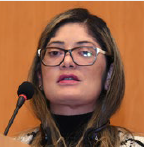
Patrícia Gonçalves Soares
Executive Secretary
Morhan (Brazil)
“Please listen to people affected by leprosy. This is the only way we can achieve a solution, because this is the only way we can really get to know the problems and come up with solutions to these problems.”

Maya Ranavare
President
Association of People Affected by Leprosy (APAL) (India)
“My suggestion is that persons affected by leprosy should be included in government planning, in whatever schemes the government has. Persons affected by leprosy should be part of the process; not at the end of it, but throughout the process.”
Changing laws and customs
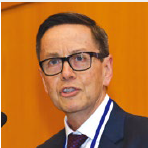
Brent Morgan
International Director
The Leprosy Mission International
“I think we’ve learned from other sectors like the HIV sector that the most effective advocacy is self-advocacy. . . . [Training] can be as simple as stuff like ensuring that people know what their rights are and what they’re entitled to.”
“In a report that I presented to the General Assembly, I identified the persistence of traditional non-written customs and practices that discriminate against persons affected by Hansen’s disease and which are grounded on beliefs coming from world or local religions. Cooperating with religious leaders is indeed one important action we can undertake.”
Medical and technological innovation

Dr. Paul Saunderson
Technical Advisor
American Leprosy Missions
“Traditionally we’ve thought of prevention as being mainly case finding and treatment of cases with MDT. . . . Then there is a recent development of post-exposure prophylaxis with single dose rifampicin and that is being gradually rolled out. . . . Then future possibilities — a leprosy-specific vaccine, or LepVax.”
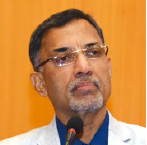
Dr. P. Narasimha Rao
President
International Leprosy Association
“During the COVID lockdown period, telemedicine through audio and video calls by using WhatsApp and Zoom applications to connect with people in need of care was a very successful model which was applied across the world. . . . In addition, innovations of virtual teaching and learning methods made education and training accessible and relatable for people of different age groups, ethnicities, and locations.”
Leveraging NTDs network
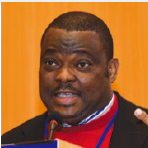
Dr. Roch Christian Johnson
Medical Director
Fondation Raoul Follereau
“When I reach out to a community for a case of leprosy, for instance, I am faced with so many difficulties. But then when it comes to treating skin conditions, it often happens that I can also identify leprosy cases. And this is why WHO has launched the integrated strategy on NTDs with skin manifestation.”
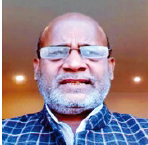
Rajni Kant Singh
State Coordinator for Bihar Operations
LEPRA Society (India)
“The second thing I would like in this slogan [leave no one behind] is the integration with other entities together so our reach will be very high. At LEPRA, we integrated in 2008 with lymphatic filariasis for two reasons: stigma reduction and also people should come together and they can act together.”







